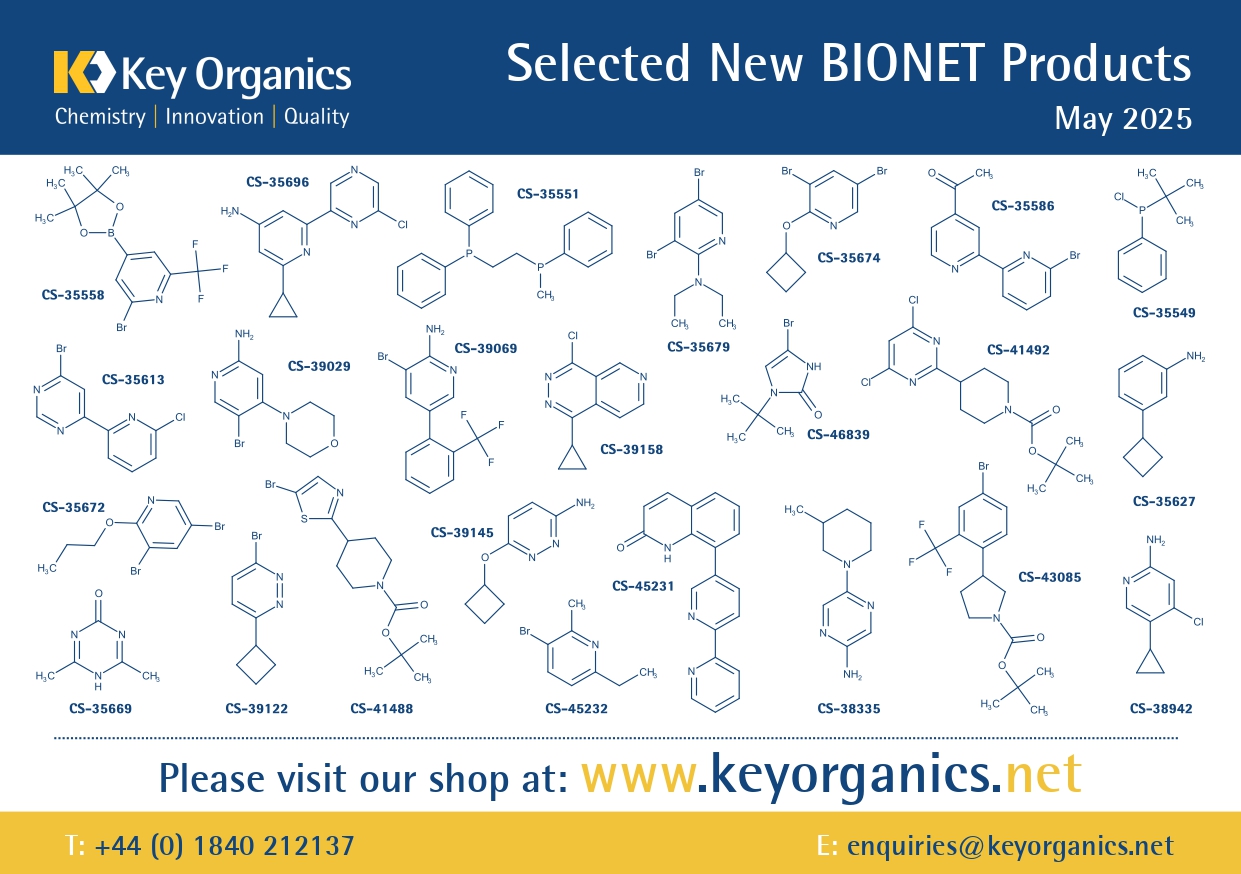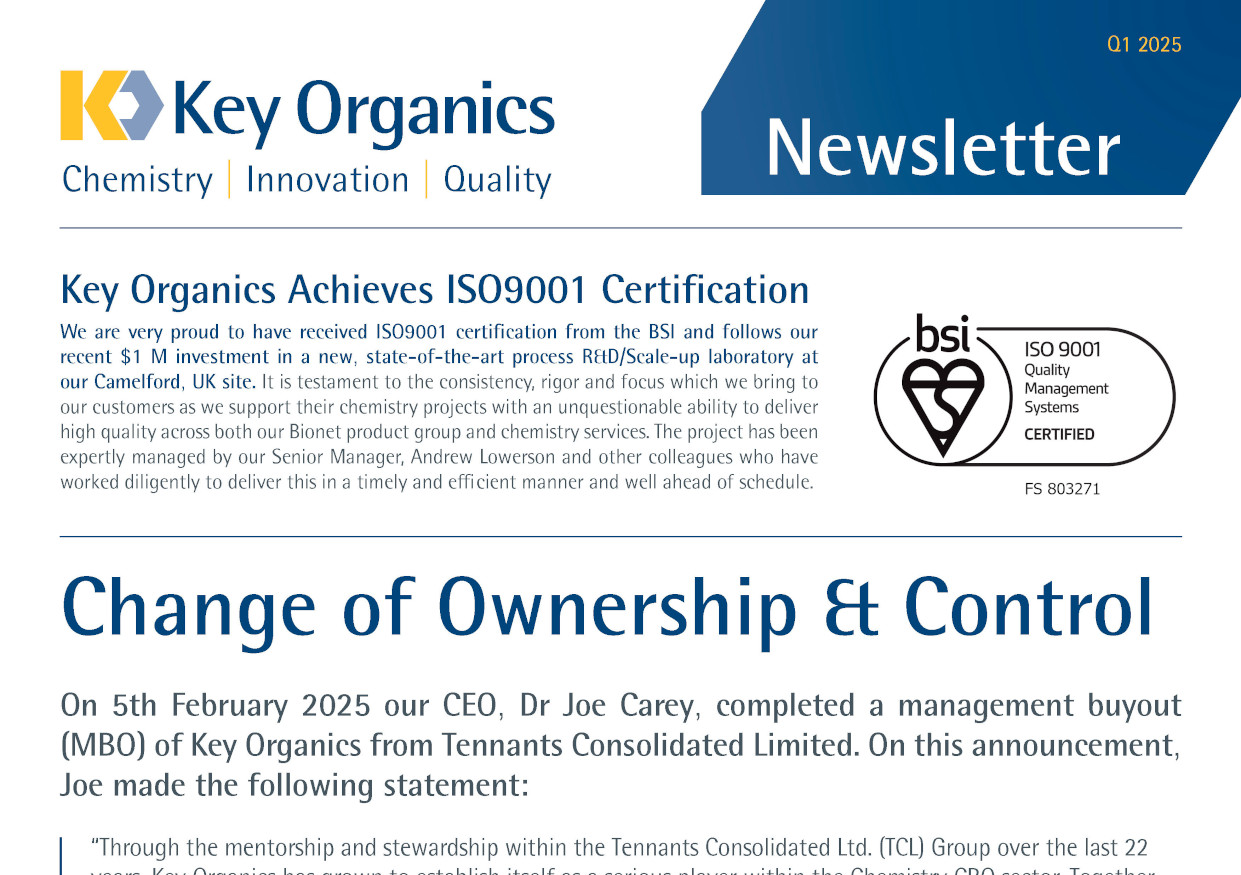The National Center for Genetic Engineering and Biotechnology (BIOTEC) is a research centre under the umbrella of the National Science and Technology Development Agency (NSTDA), Ministry of Higher Education, Science, Research and Innovation of Thailand. The centre was founded on 20 September 1983 and became a member of NSTDA in 1991. BIOTEC’s Health and Medicine program focuses its research and development to advance knowledge on neglected diseases such as malaria. Malaria research aims to understand the mechanisms of drug resistance and synthesize new drugs. The main strategies involve rational drug design and the synthesis of new effective antimalarials based on the structures of the drug targets.
In recent research at BIOTEC1 a three-step fragment-based screening of PfDHFR was undertaken employing Key Organics BIONET Premium library containing 1163 fragments. This library was chosen over other commercial ones as it is rule-of-three compliant and was curated from any PAINS and aggregating compounds. All fragments are also soluble at 200 mM in DMSO and display high diversity.
In various malaria-endemic regions, the appearance of resistance has precluded the use of pyrimidine-based antifolate drugs. Here, a three-step fragment screening was used to identify new non-pyrimidine Plasmodium falciparum dihydrofolate reductase (PfDHFR) inhibitors. A two-step differential scanning fluorimetry screen identified 75 primary fragment hits. Subsequent enzyme inhibition assay identified 11 fragments displaying IC50 in the 28-695 μM range and selectivity for PfDHFR. In addition to the known pyrimidine, three new anti-PfDHFR chemotypes were identified. Fragments from each chemotype were successfully co-crystallized with PfDHFR, revealing a binding in the active site, in the vicinity of catalytic residues, which was confirmed by molecular docking on all fragment hits. Finally, a preliminary structure-activity relationship study using non-hit fragment analogues provided input on available growth vectors for future drug development.
“We are new to the Fragment-based drug discovery field, and Key Organics has been a great help to launch our first project. In addition to providing their BIONET premium library at a highly competitive price, they were (and continue to be) a great help in the lead design process. They were happy to search for fragment analogues and to outsource from other companies to provide us with the best fragment options, which contributed to the success of our project. Key Organics is a great partner that we can only recommend! Marie Hoarau, Research Associate, BIOTEC-NSTDA”


